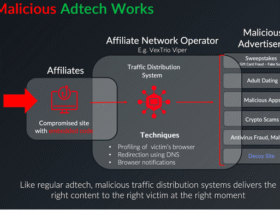
A company’s reputation is one of its most valuable assets. Whether dealing with a crisis reputation scenario or maintaining everyday reputation, businesses must be proactive in reputation management to safeguard their brand’s reputation, maintain trust, and ensure long-term success. A well-planned crisis management strategy can be the difference between swift recovery and significant losses.
However, not all reputational concerns are the same. A brand crisis hits when an unexpected negative event disrupts operations, leading to a public relations nightmare, while everyday reputation is built through consistent interactions and positive customer sentiment. Understanding the key differences between these two aspects of corporate reputation can help businesses develop effective crisis management plans and avoid full-blown crises.
What Is Reputation Management?
Reputation management is the ongoing process of shaping public perception by addressing concerns, managing potential risks, and fostering brand loyalty. A company’s reputation is influenced by multiple factors, including social media platforms, customer complaints, media coverage, and corporate social responsibility efforts.
Everyday reputation is built over time through transparent communication, positive feedback, and engagement with key stakeholders. When a crisis occurs, a strong foundation can help mitigate the negative impact of bad news and negative sentiment.
However, when negative media coverage, data breaches, or safety concerns arise, reputation management shifts into crisis mode. A well-executed crisis management plan is essential to effectively manage the situation and rebuild trust with both internal and external stakeholders.
Crisis Reputation: Navigating Business Crises
Crisis reputation refers to how a business is perceived during challenging situations. When a crisis hits—whether due to product recalls, social media backlash, natural disasters, or data breaches—companies must respond promptly and with a well-prepared crisis communication strategy.
Key Elements of Crisis Reputation Management:
- Immediate response: A swift, transparent approach prevents a minor issue from escalating into a full-blown crisis.
- Crisis prevention: Monitoring emerging issues and implementing proactive safety measures can reduce the risk of potential crises.
- Crisis communication: Engaging with customers, media channels, and other stakeholders through multiple channels ensures a consistent message.
- Public relations strategy: Effective public relations efforts can counter negative publicity and mitigate financial losses.
- Recovery process: Once the crisis is under control, businesses must focus on rebuilding consumer trust and restoring their brand image.
A corporate crisis can have long-lasting consequences if not handled appropriately. Businesses that fail to implement an effective crisis management plan may face significant losses, both financially and in terms of their brand reputation. Crisis communication should be clear, concise, and transparent to reassure customers, employees, and other stakeholders.
During a crisis, businesses must be prepared to monitor social media platforms for real-time feedback and adjust their messaging accordingly. Negative sentiment can spread rapidly, and failure to address concerns promptly may lead to further reputational damage. Organizations should leverage multiple communication channels, including press releases, media coverage, and direct engagement with key stakeholders.
Crisis reputation management is not just about responding to incidents but also about taking a proactive approach. Companies that regularly assess potential risks and have crisis prevention strategies in place can reduce the likelihood of a full-blown crisis occurring. This includes training employees on crisis communication, conducting reputation audits, and staying ahead of emerging issues that could impact their business’s reputation.
Get started with your free reputation evaluation today
Everyday Reputation: The Foundation of Trust
Unlike crisis reputation, everyday reputation is built over time and reflects a company’s ongoing commitment to excellence, customer service, and transparency. A strong business reputation helps buffer against negative sentiment when a crisis does occur.
Strategies for Maintaining a Strong Everyday Reputation:
- Encouraging positive reviews to build consumer trust and brand loyalty.
- Investing in social listening tools to monitor customer sentiment and address potential risks before they escalate.
- Engaging on social media platforms to foster relationships with customers and external stakeholders.
- Implementing corporate social responsibility initiatives that align with the company’s values and enhance public perception.
- Adhering to food safety protocols and other industry regulations to prevent avoidable issues.
Organizations that focus on long-term reputation building understand the importance of consistency in communication and service delivery. Every customer interaction, every social media post, and every internal decision contributes to the overall corporate reputation. Engaging with customers regularly and maintaining open lines of communication with major stakeholders strengthens consumer trust and brand loyalty.
Maintaining a positive reputation is a continuous process. Businesses should actively seek feedback from customers and employees, ensuring that concerns are addressed before they escalate. Implementing quality control measures, prioritizing customer service, and upholding ethical business practices are crucial for sustaining a strong everyday reputation.
How to Handle a Brand Crisis Effectively
A brand crisis can arise from various sources, including product defects, financial losses, social media backlash, and safety concerns. When a crisis occurs, companies need to act fast to maintain trust and protect their market share.
Steps to Effectively Manage a Crisis:
- Acknowledge the Issue: Transparency is key to avoiding further negative publicity.
- Respond Promptly: Use multiple communication channels to control the narrative.
- Engage Key Stakeholders: Keep major stakeholders informed and involved in decision-making.
- Leverage Social Media Platforms: Address concerns quickly and use social listening tools to gauge consumer trust.
- Implement a Crisis Management Plan: A well-structured crisis prevention and recovery process minimizes damage.
- Take Corrective Action: Whether it’s improved food safety protocols, better customer service, or operational changes, businesses must show they are committed to improvement.
- Monitor the Aftermath: Negative events don’t end when the crisis is resolved—continued engagement and reputation monitoring are essential.
An effective crisis management plan not only mitigates damage but also provides opportunities for businesses to demonstrate accountability and resilience. Companies should be prepared to evaluate what went wrong, learn from mistakes, and implement strategies to prevent similar issues in the future. The recovery process should focus on restoring customer trust, reinforcing the company’s values, and ensuring long-term brand reputation stability.
Conclusion: Strengthening Your Corporate Reputation
In today’s fast-paced environment, reputation management is no longer optional—it’s a necessity. A proactive approach to both everyday reputation and crisis reputation ensures that businesses remain resilient, even when faced with negative media coverage or other crises.
By integrating crisis prevention, effective crisis communication, and a strong crisis management plan, companies can safeguard their reputation, maintain trust, and turn challenges into opportunities for long-term growth.
Investing in a robust reputation strategy today can mean the difference between navigating a crisis successfully or suffering significant losses tomorrow. Start taking action now to build, maintain, and protect your business’s reputation. A well-managed reputation is the foundation of long-term success, ensuring stability, growth, and credibility in an increasingly competitive marketplace.















